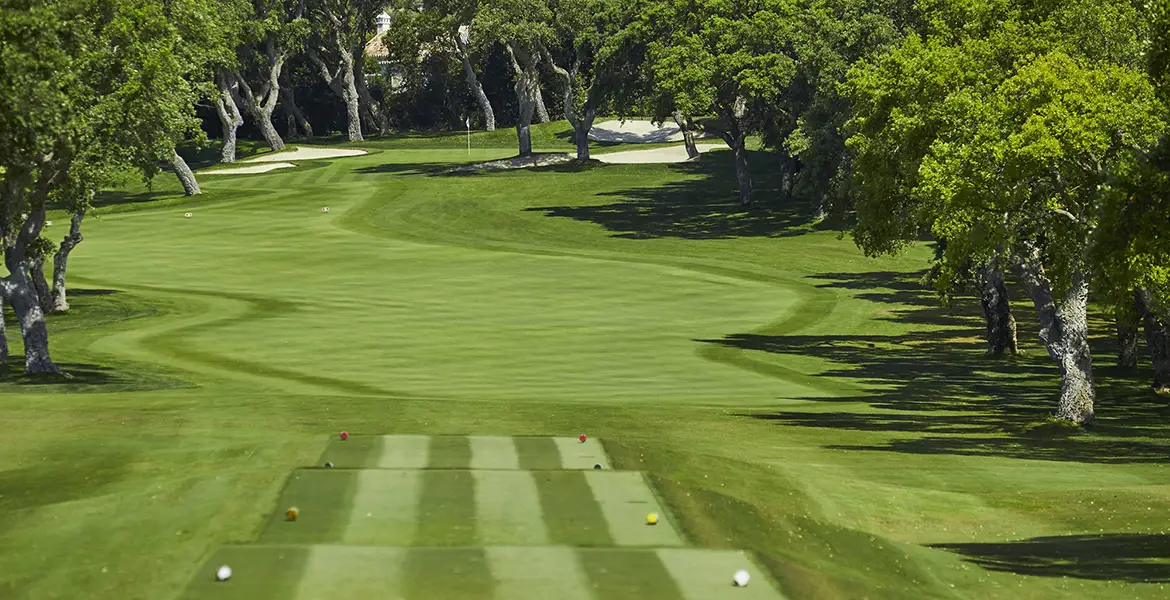Water hazards come in all shapes, sizes, and salinities, of course. The best are entirely natural, though it would be wrong to suggest man-made water hazards are off the table.
As with bunkers, we tend to prefer small and subtle—furtive, inconspicuous creeks that run across or alongside holes without calling much attention to themselves but certainly toying with your sense of security.
Yet, it would be absurd to deny the 12,000-mile-wide Pacific Ocean could be considered among the greatest of them all, coming into play on the 16th at Cypress Point, 18th at Pebble Beach, 14th at Hokuala, and so on.
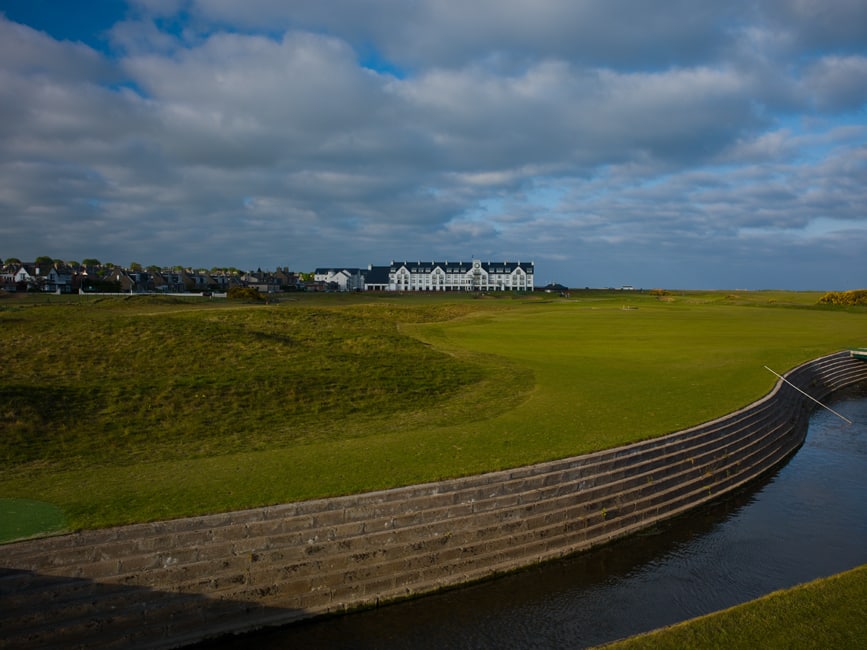
Here we’ve listed some of our favorite water hazards, and some you may not have at first considered when making your own list.
Rae’s Creek—Augusta National
Named after Irishman John Rae, a colonial trader in Georgia in the 1700s, the creek raises blood pressure around Amen Corner at Augusta National.

Barry Burn—Carnoustie
Flowing through the small Scottish town of Barry and into the North Sea, it causes havoc on the 17th and 18th (and to a lesser extent the 10th) at Carnoustie—just ask Jean van de Velde.
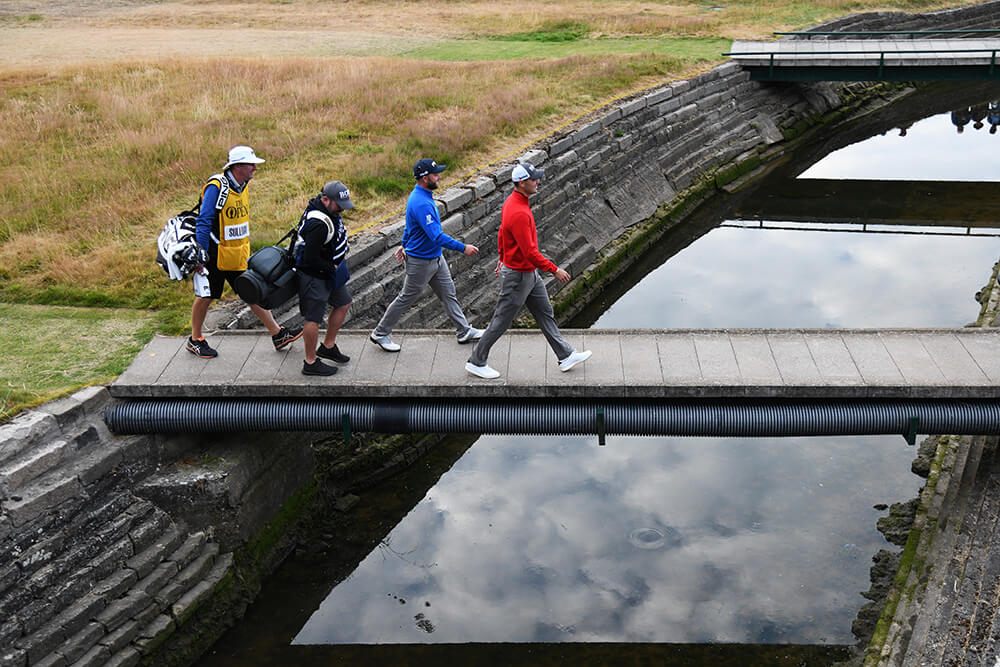
15th hole (Firethorn)—Augusta National
Nothing terribly sophisticated about it—just an oblong pond slap bang in front of the green of the course’s final par five. But oh, the excitement it instigates.

14th hole—Muirfield Village
The same creek that twists around Muirfield Village‘s par-five 11th enters stage left on the 14th before crossing the fairway then skirting the right side of the green, making the hole a deliciously devious short par four.

Cobbs Creek—Merion
Much the same happens at Merion’s outstanding par-four 11th where Cobbs Creek, an 11.8-mile-long tributary, cuts in from the left and moves diagonally across the hole, finally circling the right side of the green.
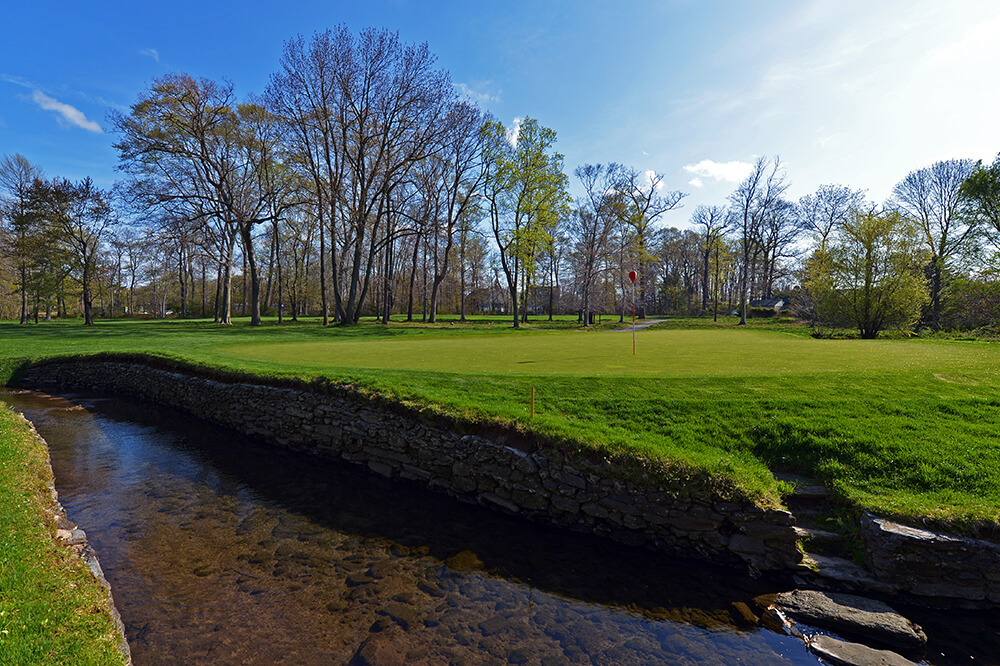
Lake Coeur d’Alene—Coeur d’Alene Resort Golf Course
This beautiful 32,000-acre lake in northern Idaho is, of course, home to the world’s first floating green at the 14th on the Resort Course at Coeur d’Alene. The tiny 3rd and splendid short par-four 13th run along the banks of the lake.
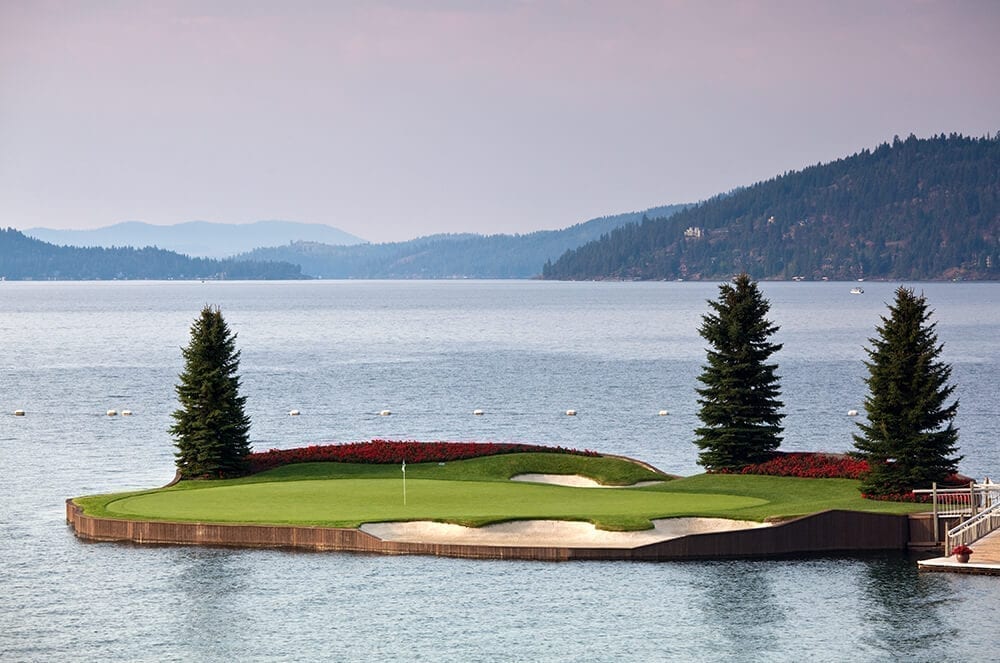
18th hole—Royal Dublin
We love the stream/creek/burn at Royal Dublin that wraps around the right side of this right-angle dogleg 463-yard par four, aka “Garden.” Can you carry it to the green on the diagonal with your second?
Pond between the 3rd and 4th holes—The Course at Yale
The water hazard that gets most attention at Yale is Griest Pond which must be cleared with the first tee shot of the day and later carried at the amazing Biarritz-green 9th. However, we have a preference for the hazard that separates the superb 3rd and 4th holes which asks a more elegant question and demands a shot that requires both judgement and execution.
HONORABLE MENTION
Atlantic and Pacific Oceans
If not a daunting hazard on some of the world’s most dramatic holes, the two largest bodies of water on earth serve as the finest of backdrops at others. The Pacific claims victims at Bandon Dunes in the U.S., Cape Kidnappers in New Zealand, and Quivira in Mexico, for example. Though only two-thirds the size of the Pacific, the Atlantic borders three times as many countries (133 to 41) and invigorates/distresses golfers at such places as Ballybunion and Old Head in Ireland, Turnberry and Machrihanish in Scotland, Cabot Cliffs in Canada, Kiawah Island in the U.S., and Port Royal in Bermuda.
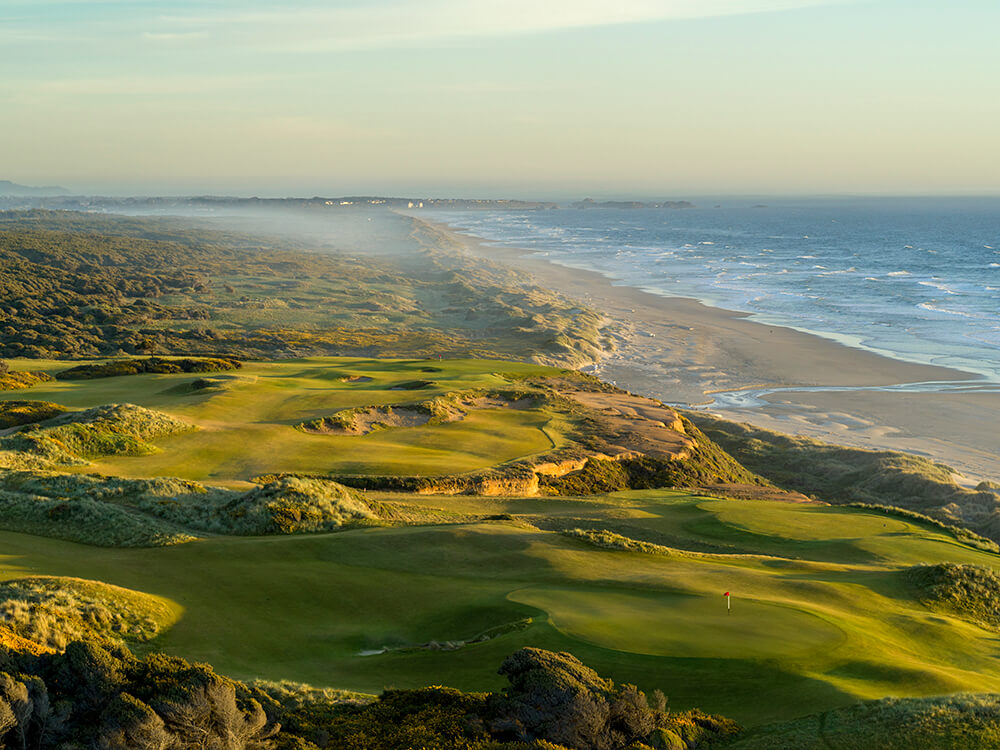
North Sea
On the east coast of Britain you might encounter it at Brora, Crail, Dunbar, and Sheringham. It’s also very much a concern at the 17th on the Castle Course at St. Andrews.
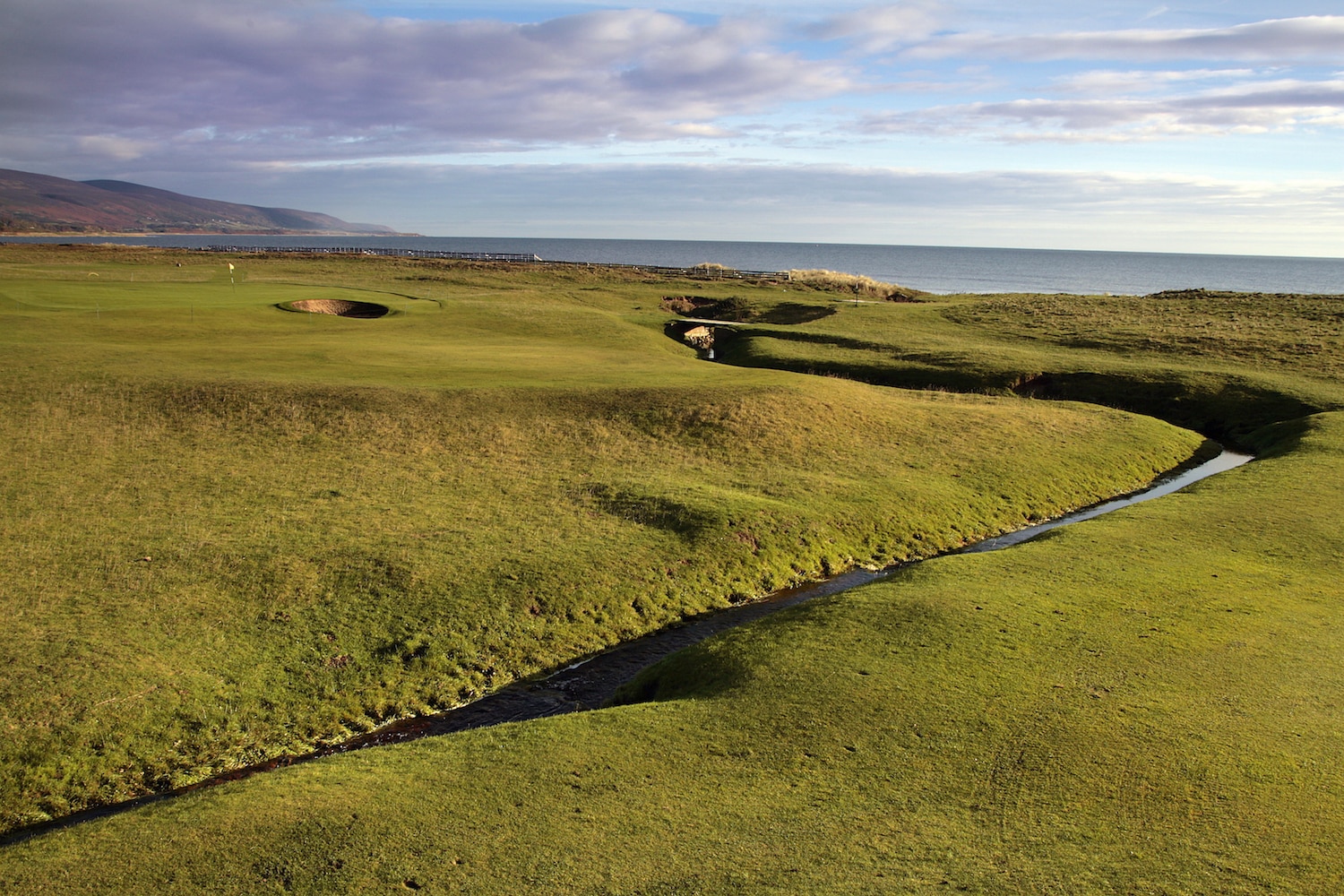
Lake Michigan
A big hook off the tee on the 12th at Arcadia Bluffs or the 17th at Whistling Straits will see you splashing into this Great Lake.
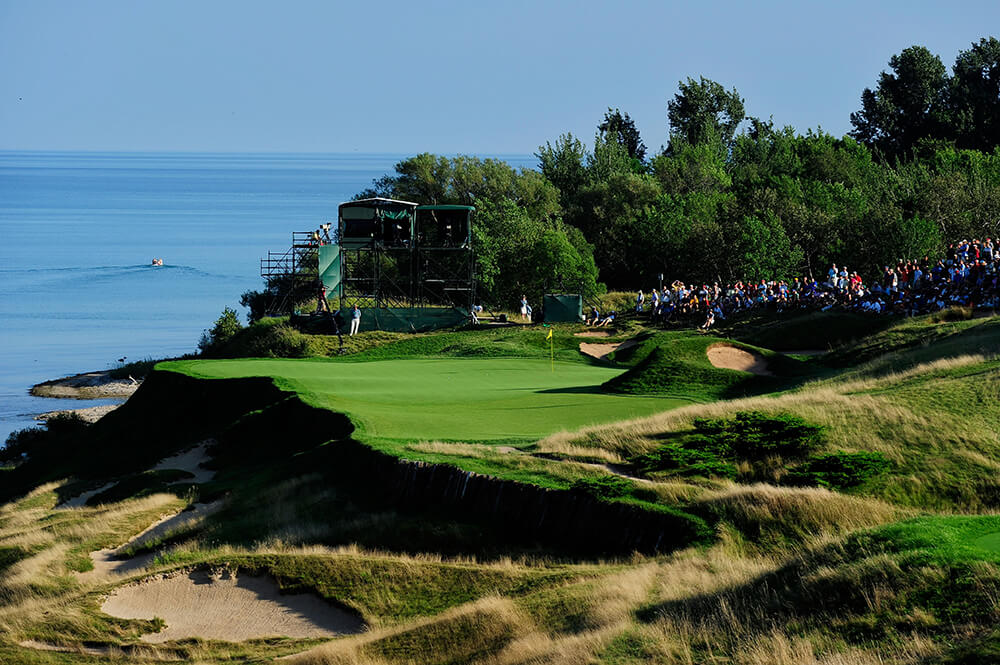
Caribbean Sea
Teeth of the Dog at Casa de Campo in the Dominican Republic, TPC Cartagena in Colombia, Mahogany Run on St. Thomas, Royal St. Kitts, and Jamaica’s trio of Cinnamon Hill, White Witch, and Tryall are among the numerous gorgeous Caribbean courses that have holes on the sea.
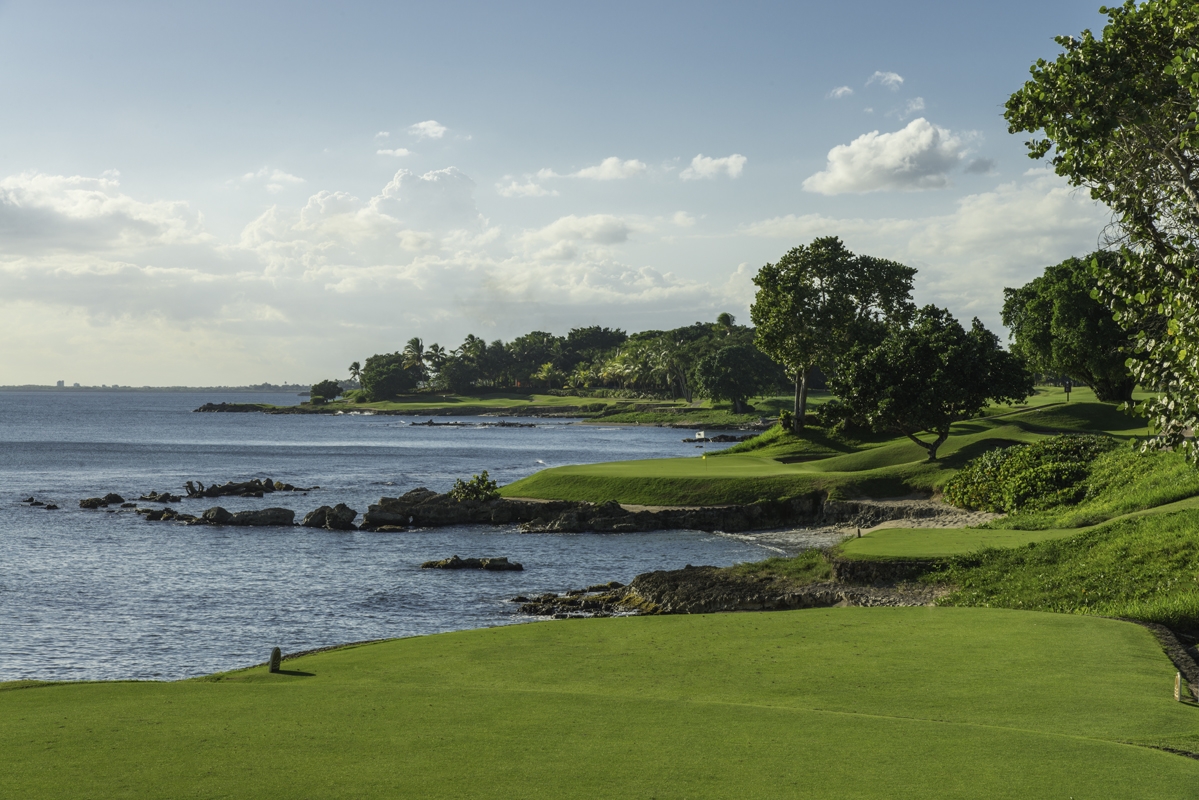
What’s your favorite water hazard? Let us know what needs to be added to the list!




